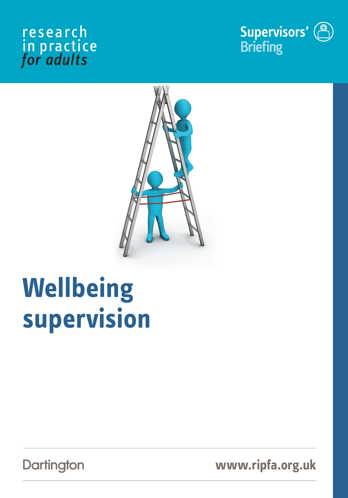Wellbeing supervision: Supervisors Briefing (2019)
Introduction
Supervision is part of any intervention with people who use services (Morrison and Wonnacott, 2010). It takes up time and resources and, in a busy social care context, it is essential that supervision is a priority for managers aiming to support practitioners in the delivery of better social care for adults.
This Supervisors’ Briefing provides a short, accessible summary of the evidence about how to embed quality and effective supervision in social care organisations. It is aimed at supervisors in social care and integrated environments where social care staff work. It is also useful for leaders in social care and integrated environments.
The general duty of a local authority, in exercising a function under this Part in the case of an individual, is to promote that individual’s wellbeing. (Care Act 2014, Part 1, Care and Support)
The principle of promoting wellbeing should be embedded through the local authority care and support system. (Care and Support Statutory Guidance 1.11)
In line with this, this briefing argues that the ultimate purpose of supervision in adult social care is to promote the wellbeing of adults and carers, and that this is achieved through keeping them at the centre of supervision - adopting a strengths-based approach to supervision; supporting supervisees’ wellbeing and promoting wellbeing throughout the organisation.
The briefing aims to enable supervisors to:
- refocus on the purpose of supervision as promoting wellbeing
- develop and embed good quality supervision using an established model as the basis
- embed strengths-based working through supervision to support wellbeing
- provide support for practical issues that impact on supervision
- evaluate the quality and impact of supervision.
Professional Standards
PQS:KSS - Relationship-based practice supervision | Supervision, critical analysis and reflection
CQC - Effective | Well-led
PCF - Critical reflection and analysis | Professional leadership
RCOT - Support development
This publication is a premium resource
Access the full publication with a one-off purchase or enjoy the benefits of membership.

